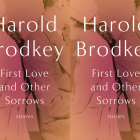Apart
Apart
Catherine Taylor
Ugly Ducking Presse, May 2012
168 pages
$17
Partway through Catherine Taylor’s lyric mélange Apart, there is a moment—just one—at which the reader is permitted to entertain the notion that perhaps the narrative is about to settle down into the story of a woman’s trip back to South Africa; the South Africa she never lived in but frequented as a child, and the South Africa she has not been back to since the Soweto uprisings but where her relatives still live. She will return, and she will tell us a story that will make emotional and political sense of this return for us. At any moment, we know—primed on the airplane, we readers trained to want such narrative—she will begin her investigative quest.
But no. “I wrote you an essay that can’t seem to come together,” she stops to address her unnamed correspondent, A. “I wrote another, more unified, version, but it felt like all that integration was a lie.”
We have been warned. As the poet and nonfiction writer Maggie Nelson says in her blurb for the book, Taylor “treats white guilt and the self-conscious recognition of privilege as starting points rather than conclusions.” For Taylor, this means fragmentation.
Contrast this start with Rian Malan’s book My Traitor’s Heart, in which Malan, an exile from South Africa, returns, the subtitle tells us, to “face his country, his tribe, and his conscience.” Here is how his book begins: “I’m burned out and I’m starving to death, so I’m just going to lay this all upon you and trust that you’re a visionary reader, because the grand design, such as it is, is going to be hard for you to see.” He can claim so much—that repetition of “his,” “his,” “his”—but while I love Malan’s book, revisiting those words after Taylor’ it becomes a list of the unknowable. Tribe. Country. Design. And, of course—story. .
What is remarkable about Taylor’s book is how much it does not force. She is torn by circumstance into a kind of un-speak, and the book feels more honest for it. I suspect its tongue-tripping, word-full silence will resonate with many, for the structure beautifully embodies the book’s theme. (No surprise, perhaps; Taylor is one of the founding editors of Essay Press, and deeply interested in the fragmented form. She and I met last year when we were both residents at the MacDowell Colony, and she sent me this book when it was published.) She permits herself to document, rather than narrate.
Taylor’s mother was involved in an early women’s anti-apartheid group, Black Sash, and Apart includes photographs and document reproductions as well as poetry, quotes, and lyrical prose. Everything begins as duality (the personal and the historical, ideas of white and ideas of black), and becomes more—even hopelessly—complex (she documents fervid documentation of albino blacks and black performers in whiteface). It is not so much that everything is dual, but as Taylor eventually notes, a “jammed hinge.” Everything remains, as the title has it, apart. In exploring the unresolvable, everything becomes a part.



